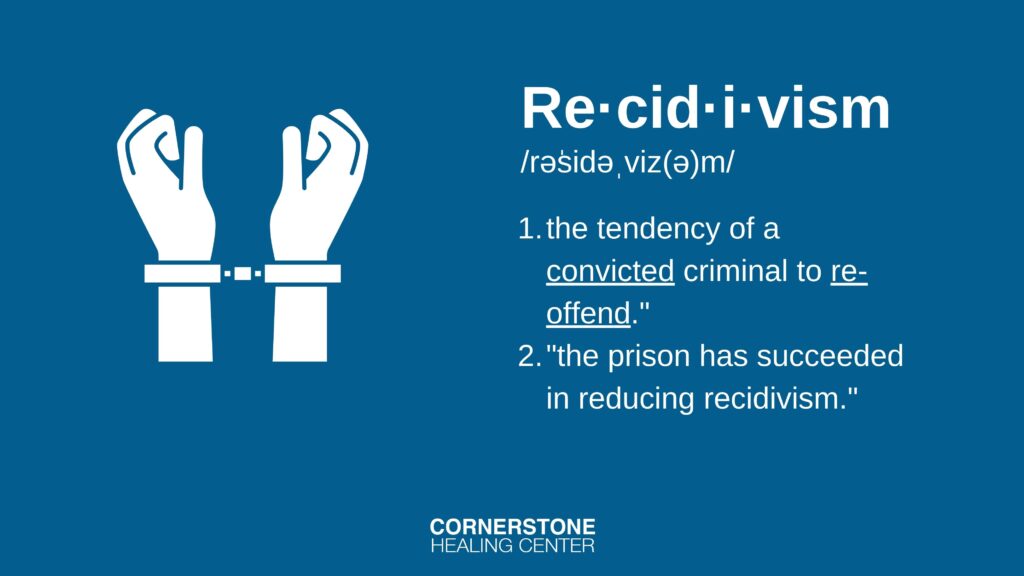Driving under the influence (DUI) poses a serious threat to road safety, with recidivism (repeated offenses) being a significant concern.
To combat this issue, DUI education programs aim to educate drivers and change their behavior.
In this article, we will explore the effects of DUI education on recidivism rates and how it contributes to promoting road safety.

The Prevalence of DUI Recidivism
Driving under the influence of alcohol is a serious offense in itself.
When an individual is caught driving under the influence of alcohol more than once, known as DUI recidivism, it poses a significant threat to public safety.
This is because it increases the chances of car accidents, injuries, and fatalities, all major concerns.
According to the U.S. Department of Transportation, about one-third of all DUI arrests and convictions are related to repeat offenders.1
The risk of recidivism is highest within the first two years after a conviction, with a startling 21% of first-time DUI offenders being arrested again for DUI within five years.
However, these rates can vary significantly across different regions.
In some states, up to 30% of DUI arrests involve individuals with prior convictions.
The high recidivism rates have profound societal consequences.
They contribute to increased traffic accidents and fatalities, economic losses of billions of dollars, and a substantial strain on law enforcement and judicial resources.
Drivers with prior DUI convictions are four to five times more likely to be involved in fatal crashes.
On an individual level, the consequences are equally severe and range from escalating legal penalties and potential job loss to strained personal relationships and ongoing substance abuse issues.
Addressing DUI recidivism is, therefore, a matter of public safety and a crucial step toward mitigating the extensive social, economic, and personal ramifications associated with repeat DUI offenses.
Implementing DUI education programs is a vital component of a comprehensive strategy aimed at reducing these rates and fostering safer communities.
What Does DUI Education Entail?
DUI education programs generally consist of classes conducted over several weeks, though the specific duration and format can vary by jurisdiction and the severity of the offense.
Participants are educated on a variety of topics related to alcohol and drug use, driving, and the associated legal and personal ramifications.
These programs often incorporate group discussions, lectures, videos, and interactive activities to facilitate learning and reflection.
Components of the Curriculum:
| Topic Area | Details |
|---|---|
| Understanding Alcohol Effects | Overview of drugs and alcohol’s effects on driving, including BAC and legal limits. |
| Legal Implications | Insight into DUI laws, post-arrest process, and potential penalties like fines, license suspension, and jail time. |
| Personal Consequences | Examines personal and social fallout of DUI offenses, including job, relationship, and emotional impacts. |
| Decision-Making & Responsibility | Emphasizes responsible choices, recognizing danger, and strategies to avoid impaired driving. |
| Impact on Families & Communities | Discussion on the aftermath of DUI-related accidents and the broader community repercussions. |
| Support & Resources | Details on support services like counseling and substance abuse treatment. |
| Evaluation & Feedback | Assessment before, during, and post-program to gauge its impact and reinforce learning. |
By covering these components, DUI education programs aim to equip individuals with the necessary knowledge and skills to make safer choices, ultimately contributing to reducing DUI incidents and enhancing public safety.
Empirical Evidence: How DUI Education Affects Recidivism Rates
DUI education programs have been the subject of various studies aiming to evaluate their effectiveness in reducing recidivism rates among individuals convicted of driving under the influence.
These studies have yielded mixed results, with some showing positive outcomes while others highlight the challenges and limitations of these programs.
Overview of Studies and Their Findings
Positive Outcomes:
Some studies have demonstrated that DUI education programs can lead to a reduction in repeat offenses.
For example, a research study published in the Journal of Studies on Alcohol found that participants of DUI education programs showed a 7-9% reduction in recidivism rates compared to those who did not participate in such programs.2
Another study indicated that well-structured DUI education programs could lead to a 10-15% decrease in repeat offenses.
Challenges and Limitations:
On the other hand, other studies have pointed out the limitations of DUI education programs, arguing that they may not be sufficient in addressing the complex issue of DUI recidivism.
For instance, a review of multiple studies found that while some programs showed positive effects, others had minimal or no impact on recidivism rates.
These mixed results highlight the challenges in creating effective DUI education programs and emphasize the need for comprehensive strategies beyond education alone.
Data on Effectiveness
Reduction in Repeat Offenses:
Data from various studies indicate that the effectiveness of DUI education programs in reducing repeat offenses can range from minimal to moderate.
The variance in effectiveness is influenced by several factors, including the curriculum’s content, delivery methods, and program duration.
Long-Term Impact:
While some studies have shown a short-term reduction in recidivism rates following participation in DUI education programs, the long-term impact is less clear.
Sustained reductions in repeat offenses may require ongoing support and interventions beyond the duration of the education program.
Variance in Effectiveness
Differences in Curriculum:
The content of the DUI education curriculum can play a significant role in its effectiveness.
Programs incorporating evidence-based practices, interactive learning, and personalized feedback tend to be more effective than those relying on lectures and passive learning.
Delivery Methods:
How the curriculum is delivered also influences the program’s effectiveness.
Engaging and interactive delivery methods that encourage participation and reflection are associated with better outcomes.
Duration of the Program:
The duration of the DUI education program can impact its effectiveness, with longer programs providing more opportunities for learning and behavior change.
However, the optimal duration may vary based on individual needs and circumstances.
Comprehensive Approaches:
Studies suggest that DUI education programs are more effective when they are part of a comprehensive approach to DUI prevention, including legal sanctions, treatment for substance abuse, and ongoing support and monitoring.
While DUI education programs have shown potential in reducing recidivism rates, their effectiveness varies widely.
Achieving consistent and sustained reductions in repeat offenses requires attention to the quality of the curriculum, effective delivery methods, and integration with broader DUI prevention strategies.
Psychological Aspects
DUI education programs are crucial in addressing the psychological aspects of driving under the influence.
Their aim is to reshape individuals’ attitudes and perceptions regarding this dangerous behavior.
These programs provide comprehensive information about the risks and consequences of impaired driving, encouraging participants to reflect on their actions and consider the potential impact on themselves and others.
Through this educational process, common myths and misconceptions about alcohol consumption and driving are debunked, fostering a more realistic understanding of the dangers involved.
In addition, these programs strive to enhance self-awareness, prompting individuals to recognize their drinking patterns, identify situations that may lead to impaired driving, and understand their personal responsibility in making safer choices.
Mindset and Attitudes
Participating in DUI education plays a significant role in changing people’s mindsets and attitudes toward drinking and driving.
The program involves interactive discussions, real-life examples, and thought-provoking activities that encourage individuals to critically evaluate their beliefs and attitudes about alcohol use and driving.
The goal of the program is to promote a sense of responsibility and accountability, emphasizing the importance of making safe and informed choices.
By fostering a change in mindset, DUI education aims to combat the normalization of drinking and driving, promoting a culture of safety and responsibility on the roads.
Role of Self-Awareness, Empathy, and Responsibility
Individuals convicted of DUI are less likely to repeat the offense if they possess self-awareness, empathy, and a sense of responsibility.
To achieve this, DUI education programs focus on developing these traits in participants.
They help individuals identify the risk factors and triggers that could lead to impaired driving, thereby improving their self-awareness.
Programs also educate participants on the impact of DUI on victims and their families, fostering empathy toward the victims.
Furthermore, by highlighting the legal and personal consequences of DUI, the programs encourage participants to take responsibility for their actions and make better decisions in the future.
Psychological aspects like self-awareness, empathy, and responsibility, therefore, play a crucial role in bringing about lasting change and reducing the likelihood of repeat offenses.
Supplementing DUI Education for Greater Impact
DUI education programs play a crucial role in reducing repeat offenses of driving under the influence.
However, they can be more effective when used in conjunction with other interventions.
By supplementing DUI education with additional interventions, individuals convicted of DUI are provided with a more comprehensive and supportive approach to prevention.
| Intervention Type | Details |
|---|---|
| Counseling and Treatment | For individuals with substance abuse problems, counseling, and treatment programs offer support and resources to address these issues. They provide a personalized approach, helping to understand the relationship with alcohol, develop coping strategies, and work towards lasting behavioral change. |
| Support Groups | Groups like Alcoholics Anonymous provide a space for sharing experiences, learning, and gaining support. These communities are crucial for maintaining sobriety and preventing future DUI offenses. |
| Ignition Interlock Devices | These devices require a breathalyzer test before the car starts, which is an effective deterrent. When used with DUI education, they ensure safe driving and remind individuals to make responsible choices. |
| Monitoring and Follow-Up | Ongoing interventions help maintain accountability and ensure lessons from DUI education are applied. Regular check-ins provide a chance to assess progress, tackle challenges, and emphasize safe driving. |
| Legal Sanctions | Fines, license suspension, or jail time underscore the severity of DUI offenses. When combined with education, these sanctions balance punishment and rehabilitation, providing a comprehensive approach. |
Case Study: Washington State
Washington State utilizes a multifaceted approach to combat DUI offenses through education, legal penalties, and support, which reduces recidivism rates.3
DUI Education and Treatment:
Individuals convicted of driving under the influence in Washington are mandated to undergo DUI education and treatment.
The curriculum covers a range of topics, including the effects of alcohol, the legal consequences of a DUI, and techniques for making safer choices.
For those struggling with substance abuse, the state requires participation in a personalized treatment program that caters to their specific needs.
Ignition Interlock Devices:
The state has also implemented ignition interlock devices for individuals convicted of DUI.
This device prevents the car from starting if the driver’s breath alcohol concentration is above a set limit.
The mandatory use of these devices has shown to be effective in preventing repeat offenses while the device is installed.
Legal Sanctions and Monitoring:
In Washington, driving under the influence (DUI) is a serious offense, and the state has strict legal penalties for those convicted of it.
This includes fines, license suspension, and even possible jail time.
The state places a special emphasis on monitoring and follow-up, especially for individuals with multiple DUI convictions.
To ensure compliance and prevent further impaired driving incidents, electronic monitoring, and home detention programs are utilized.
Community Support and Awareness Programs:
Beyond individual interventions, Washington has invested in community education and awareness programs.
These initiatives aim to change public attitudes toward drinking and driving, promote responsible behavior, and create an environment that supports sober driving.
Results and Impact
The comprehensive approach adopted by Washington State has yielded positive results, with a noticeable reduction in DUI recidivism rates.
The combination of education, treatment, legal sanctions, and technological interventions has created a robust system that addresses various aspects of impaired driving.
Lessons Learned
Washington has successfully tackled the issue of DUI offenses by implementing a comprehensive strategy that considers multiple factors.
By addressing the problem from different angles, the state has created an environment that is both supportive and accountable, encouraging people to change their behavior and making the public safer.
Other jurisdictions that want to reduce DUI recidivism rates can learn from Washington’s model and adapt its strategies to suit their specific context and needs.
Through continuous evaluation and adaptation of their programs, places like Washington State showcase the potential impact of a multi-faceted approach in reducing DUI offenses and creating safer roads for all.
Challenges and Limitations
DUI education programs are essential in combating impaired driving, but they face many challenges that can hinder their effectiveness.
One of the primary issues is the inconsistency in the quality and content of programs, with some lacking evidence-based curricula and engaging teaching methods, which are crucial in changing attitudes and behaviors.
Additionally, many programs are too short to instill lasting behavioral change, especially for individuals with substance abuse problems or a history of repeat offenses.
Another challenge is that some participants might resist the program’s message due to denial of their drinking problem or a lack of motivation to change.
The effectiveness of these programs can be further limited by the lack of follow-up and ongoing support, as lasting change often requires continuous reinforcement and accountability.
Lastly, the isolation of DUI education programs from broader DUI prevention strategies can diminish their impact.
Therefore, a comprehensive and integrated approach is necessary to address the complex issue of impaired driving effectively.
External Factors
Various external factors, which are beyond the scope of educational programs, significantly influence the DUI recidivism rates.
This showcases the complexity of addressing impaired driving.
For instance, socioeconomic factors can have a substantial impact.
Individuals from lower socioeconomic backgrounds might face limited access to quality education and treatment programs, hindering their ability to break the cycle of recidivism.
The presence of mental health issues is also a critical component.
Individuals dealing with mental health conditions might be more prone to engage in risky behaviors, including impaired driving.
Moreover, the interaction between substance abuse and mental health further complicates the situation, necessitating comprehensive intervention strategies beyond education alone.
Environmental factors such as peer influence and social norms around drinking and driving can perpetuate risky behaviors, regardless of the knowledge and awareness gained through education programs.
It is crucial to address these external factors to create a holistic strategy that not only educates but also provides the necessary support and resources to foster lasting behavioral change and effectively reduce DUI recidivism rates.
The Future of DUI Education
Innovations and technology are playing a significant role in enhancing the effectiveness of DUI education, making the future of this field appear promising.
Among the most exciting developments is integrating virtual reality (VR) experiences, which offer a highly immersive and impactful learning environment.
VR helps participants experience the potential consequences of impaired driving in a safe and controlled setting, leading to a deeper understanding and stronger emotional impact than traditional classroom-based learning.4
This hands-on experience can be particularly effective in changing attitudes and behaviors, making the risks and consequences of DUI tangibly clear to participants.
Another innovation is the move toward personalized education tracks, catering to the specific needs, risk factors, and learning preferences of individual participants.
This approach recognizes that the factors leading to impaired driving can vary widely among individuals and aims to address the root causes of DUI offenses, offering targeted interventions and support.
This tailored approach has the potential to enhance program effectiveness, ensuring that participants receive the most relevant and impactful education possible.
Alongside these innovations, there is a growing recognition of the importance of continuously updating and improving DUI education curricula based on the latest research findings and best practices.
The field of impaired driving prevention is constantly evolving, and education programs must adapt accordingly to remain effective.
Regular reviews of program content, teaching methods, and overall structure are necessary to ensure that they are evidence-based, engaging, and capable of achieving the desired outcomes.
By staying at the forefront of research and innovation, DUI education programs can be crucial in reducing recidivism rates, fostering safer roads, and saving lives.
Enhancing DUI Education to Reduce Recidivism and Promote Safer Roads
DUI education is a crucial component in reducing recidivism, promoting safer roads, and cultivating a sense of responsibility in those charged with DUI offenses.
Policymakers, educators, and community leaders play a significant role in supporting and enhancing this educational initiative, ensuring its relevance and effectiveness.
Cornerstone Healing Center in Scottsdale, AZ, offers a comprehensive solution for DUI offenses and alcohol addiction.
We provide MVD-approved online DUI classes, DUI and Alcohol Screenings, and Assessments, making it easier for individuals to access essential services from anywhere, at any time.
We are committed to affordability, and we promise to beat any competitor’s prices by 10%.
Our commitment to our clients doesn’t stop there.
We understand the complexity of alcohol addiction and take a holistic approach to address the root causes of addiction.
Our Alcohol rehab programs offer comprehensive support, resources, and evidence-based treatments to guide individuals on their journey to recovery.
We are dedicated to empowering individuals, fostering resilience, and contributing to creating safer communities.
Experience the Cornerstone difference today, and let us help you create lasting change!





